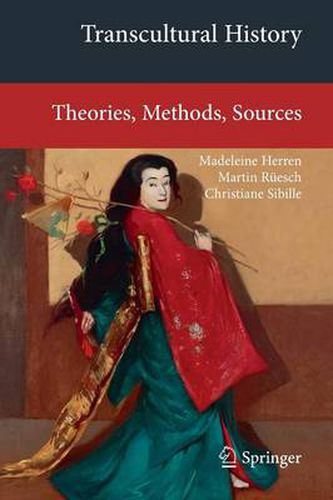Readings Newsletter
Become a Readings Member to make your shopping experience even easier.
Sign in or sign up for free!
You’re not far away from qualifying for FREE standard shipping within Australia
You’ve qualified for FREE standard shipping within Australia
The cart is loading…






This title is printed to order. This book may have been self-published. If so, we cannot guarantee the quality of the content. In the main most books will have gone through the editing process however some may not. We therefore suggest that you be aware of this before ordering this book. If in doubt check either the author or publisher’s details as we are unable to accept any returns unless they are faulty. Please contact us if you have any questions.
For the 21st century, the often-quoted citation ‘past is prologue’ reads the other way around: The global present lacks a historical narrative for the global past. Focussing on a transcultural history, this book questions the territoriality of historical concepts and offers a narrative, which aims to overcome cultural essentialism by focussing on crossing borders of all kinds. Transcultural History reflects critically on the way history is constructed, asking who formed history in the past and who succeeded in shaping what we call the master narrative. Although trained European historians, the authors aim to present a useful approach to global history, showing first of all how a Eurocentric but universal historiography removed or essentialised certain topics in Asian history. As an empirical discipline, history is based on source material, analysed according to rules resulting from a strong methodological background. This book accesses the global past after World War I, looking at the well known stage of the Paris Peace Conferences, observing the multiplication of new borders and the variety of transgressing institutions, concepts, actors, men and women inventing themselves as global subjects, but sharing a bitter experience with almost all local societies at this time, namely the awareness of having relatives buried in far distant places due to globalised wars.
$9.00 standard shipping within Australia
FREE standard shipping within Australia for orders over $100.00
Express & International shipping calculated at checkout
This title is printed to order. This book may have been self-published. If so, we cannot guarantee the quality of the content. In the main most books will have gone through the editing process however some may not. We therefore suggest that you be aware of this before ordering this book. If in doubt check either the author or publisher’s details as we are unable to accept any returns unless they are faulty. Please contact us if you have any questions.
For the 21st century, the often-quoted citation ‘past is prologue’ reads the other way around: The global present lacks a historical narrative for the global past. Focussing on a transcultural history, this book questions the territoriality of historical concepts and offers a narrative, which aims to overcome cultural essentialism by focussing on crossing borders of all kinds. Transcultural History reflects critically on the way history is constructed, asking who formed history in the past and who succeeded in shaping what we call the master narrative. Although trained European historians, the authors aim to present a useful approach to global history, showing first of all how a Eurocentric but universal historiography removed or essentialised certain topics in Asian history. As an empirical discipline, history is based on source material, analysed according to rules resulting from a strong methodological background. This book accesses the global past after World War I, looking at the well known stage of the Paris Peace Conferences, observing the multiplication of new borders and the variety of transgressing institutions, concepts, actors, men and women inventing themselves as global subjects, but sharing a bitter experience with almost all local societies at this time, namely the awareness of having relatives buried in far distant places due to globalised wars.